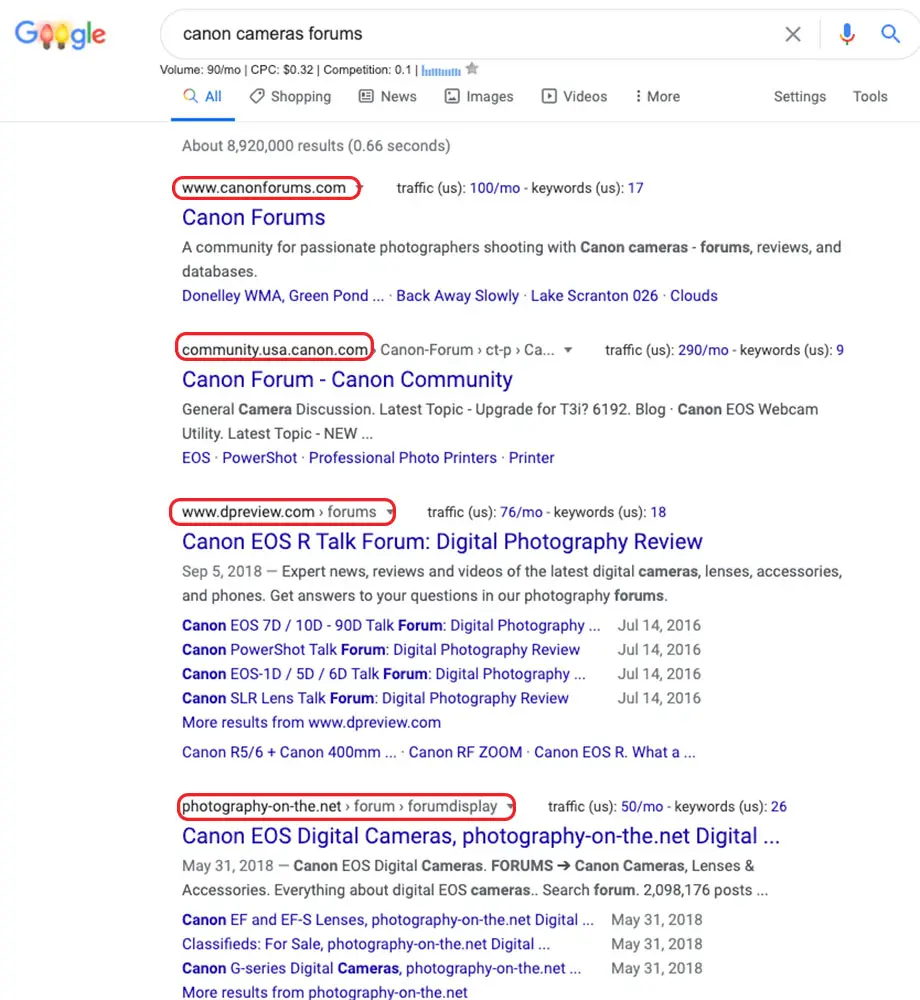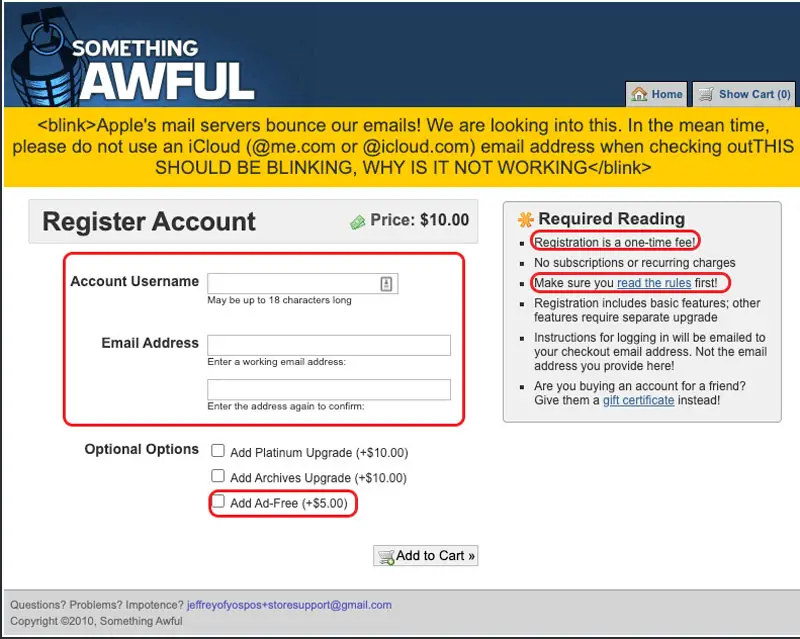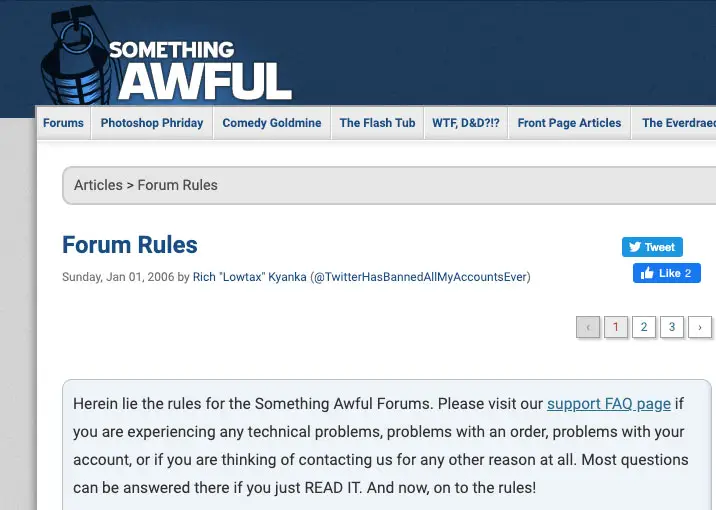
7 Tips For Running A Successful Forum Or Online Community

Get helpful updates in your inbox
Forums and online communities have been growing in popularity over the last decade. Some are small and focus on a singular, niche topic, and others, like Reddit and Quora, have hundreds of millions of active users. If your website’s niche lends itself to being community-driven, having a healthy forum with active members can translate to a lot of traffic. But there are many publishers who don’t know where to begin. So today I’m going to walk you through the 7 tips for running a successful forum or online community.
1. Strategically choose your niche
The first and arguably the most important step to running a successful forum is to strategically choose your niche. But why is this?
It has to do with how forums and online communities have grown since the dawn of the internet. Back in the late 90s and the early 2000s, publishers who created forums around a topic typically were the first to do so. In turn, this meant there was less competition (or none at all), and visitors seeking out that topic would find the forum.
Nowadays, there’s a forum on almost every topic, both broad and narrow. However, that doesn’t mean you can’t create a successful forum or online community.
The best way to do this is by choosing a product or a very narrow niche topic to create your forum around.

Using Google Trends, upon first glance, fine art seems like a great topic that has steady interest year-round. But once you check the Google search results for “fine art forums”, you discover that the entire first page of Google is littered with forums that are about the general interest “art”.
Additionally, from a monetization standpoint, ad rates are going to be lower on a general interest forum. It’s common knowledge that certain categories of websites receive higher ad rates and subsequently earn more money. This same phenomenon applies to forums and online communities.
While “fine art” is more of a “general” interest, a certain sub-sect of art may prove a more focused topic.
For example, let’s say instead of “fine art”, you choose “Pottery.” How could you turn that into a more product-driven niche?
You could make a forum around pottery materials, equipment, potter’s wheels, firing kilns, etc.

So as a rule of thumb, if you can choose a forum or community topic that is centered around a product, rather than a general interest, you will more easily attract visitors looking for product-specific information.
Moreover, as your forum grows if you decide to monetize with display ads, product-specific niches will earn higher ad rates than niche-less, general topics.
2. Check for any existing competitors
Before you start a forum or online community, you want to check to see what your competition looks like.
For example, let’s take the product “Canon cameras”. You can see straight away that the top result is a domain called www.canonforums.com. The second result is a subdomain of the Canon website itself.

The third and fourth results on Google are photography websites. These results show you that there’s a lot of existing competition around Canon cameras, so it might not be a good idea to choose this niche.
Ideally, you want to find a product or a niche topic that people are passionate about, but when you go to research, there’s not a good resource online for that product or topic.
It’s also a good idea to check Reddit. If there is a large and active subreddit for your product or topic, it’s unlikely that you will be able to draw visitors away from Reddit.
3. Ensure registration for users is easy
It seems like common sense, but you’d be surprised how many forums make account registration a headache.
If a potential user sees a laundry list of items they have to fill out to register, they might bounce. This is why you should ensure that registration is as easy as possible.
Below is the registration page for somethingawful.com, a dark comedy forum that gets millions of visitors per month. All they ask from users is to pick their username and enter their email address. Simple enough, right?

Because Something Awful is a well-established forum, you can see that they chose to charge for membership. Even with charging for membership, they also give users an option to have an ad-free experience.
I point this out to show that the way you monetize is up to you. Although, generally speaking, the “power of free” is preferable for most users over paid subscriptions, that’s up to website owners to decide.
As you scale your forum or online community and traffic grows, you will have more options to determine how to monetize.
4. Create a set of rules for forum members
To maintain and grow an active forum, you need to create a set of rules for community members.
These rules are up to you, and the vast majority of forums have them (even Subreddits on Reddit do).
Something Awful has a dedicated page for their forum rules.

Some of these rules include respecting the mods and writers, no harassment or sass, no hate speech, or arguments.
Try to think of rules that will keep users engaged and posting, yet won’t be hesitant to post in fear of being overly-moderated.
5. Moderate when necessary
Moderation can sometimes be an afterthought when you’re creating a new online community. But in reality, it’s one of the most important tips for running a successful forum.
Because if your members are subject to rules, someone has to step in and enforce them when they are broken. Does that mean you have to moderate every post that breaks your community rules?
That’s entirely up to you. Some forums put notices on their rules pages that say certain rules are applied subjectively. In that case, you can subjectively moderate and pick-and-choose what posts to remove.
Pro tip: Don’t over-moderate. The last thing you want to do is discourage members from posting.
If your forum is growing and members are becoming more and more active, a larger degree of moderation will be necessary. And at that point, you might want to consider to have others help you moderate.
While this isn’t always the case for smaller communities, once your forum has grown to a critical mass, there will likely be a lot of posts that fall through the cracks that may need to be removed. Implementing a “flag post” option is a good way to allow your users to get the attention of the moderators.
6. Focus on content quality and visitor engagement
Once your forum grows to a certain size, you might have thousands to tens of thousands of post threads on your site.
To run a successful forum or online community, you need two things: users who are posting, and other users who are engaging with those posts.
Outside of optimizing your forum boards and pages for SEO, you need to find ways to get real users onto post topics they will engage with—and keep that cycle repeating over and over.
Some website owners in the beginning post threads themselves, and then use social media advertising to drive traffic to the website. While this might work in the beginning, it’s hard to sustain that growth without spending a lot of money to do so.
While that works for plenty of other sites, and it can for forums too, it’s more difficult because you’re asking a visitor to not only read posts but engage and post on their own.
Once you do see some growth, you should use an analytics tool to determine what landing pages (of your post threads) are the most successful. Keeping track of this data can inform your strategy on which threads to boost, which threads to close (if they go without engagement for years), and more.
Ezoic’s Big Data Analytics allows publishers to see granular details on how their landing pages are performing. Not only can you see traffic, UX data like scroll depth, page engagement time, bounce rate, etc., but you can also see all of that data tied to revenue. Knowing which pages are the most valuable to you financially and from a user-engagement perspective is invaluable for forum owners.
7. Evolve your strategy as your forum grows
If you truly want to run a successful forum or online community, you need to evolve your strategy as your forum grows.
This might look different on a forum-to-forum basis. Let me give you an example.
Let’s say you run the internet’s largest forum on construction equipment. You have a rule that says for members can’t post about politics. Then, years later, you start having a decent number of members who are talking amongst each other about politics. Maybe a certain candidate is putting a tax on x or y brand of equipment, and a huge post thread broke out discussing it.
What do you do? Do you let the thread live, or do you take it down because it breaks the rules? This is a question only you can answer.
But in my interview with Tractorbynet.com owner Muhammad Chishti, who runs the internet’s largest forum for tractor equipment, he advises keeping your members happy as much as possible. As long as it’s not causing harm to other members, it might be in your best interest to let them discuss other things outside of your primary topic.
You can also evolve your monetization strategy a well. Perhaps you always stuck to display ads, but you want to experiment with creating a higher tier of membership for paid subscribers on top of free membership.
Those decisions are totally up to you, but I recommend doing what your users prefer best. If you lose your forum members, you’ve now lost your community. So keep them happy above all else.
Wrapping up the 7 tips for running a successful forum or online community
The 7 tips for running a successful forum or online community are:
- Strategically choose your niche
- Check for existing competitors
- Ensure registration for users is easy
- Create a set of rules for forum members
- Moderate when necessary
- Focus on content quality and visitor engagement
- Evolve your strategy as your forum grows
In reality, it’s no easy task to create a successful forum these days. That’s primarily because the most established forums and online communities were started when the internet was just in its infancy. Additionally, it’s also due to the increasing popularity of mega forums like Reddit and Quora.
That being said, it’s still possible to create a successful online community on your website. For most publishers, it might make more sense to create forums on your website after you’ve already established some blog content on your website and gained steady organic traffic.
That way, as you build your website’s brand, its return users have a place to engage with each other.
Do you have any questions or comments on these tips? Let me know in the comments

Allen is a published author and accomplished digital marketer. The author of two separate novels, Allen is a developing marketer with a deep understanding of the online publishing landscape. Allen currently serves as Ezoic's head of content and works directly with publishers and industry partners to bring emerging news and stories to Ezoic publishers.
Featured Content
Checkout this popular and trending content

Ranking In Universal Search Results: Video Is The Secret
See how Flickify can become the ultimate SEO hack for sites missing out on rankings because of a lack of video.
Announcement

Ezoic Edge: The Fastest Way To Load Pages. Period.
Ezoic announces an industry-first edge content delivery network for websites and creators; bringing the fastest pages on the web to Ezoic publishers.
Launch

Ezoic Unveils New Enterprise Program: Empowering Creators to Scale and Succeed
Ezoic recently announced a higher level designed for publishers that have reached that ultimate stage of growth. See what it means for Ezoic users.
Announcement
